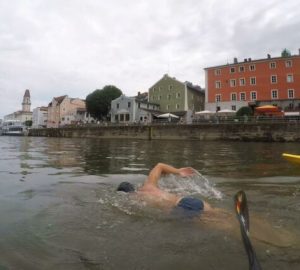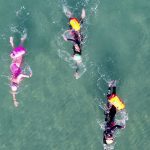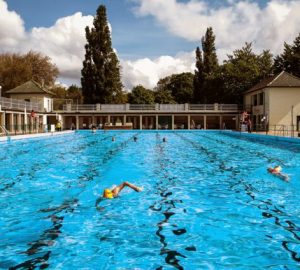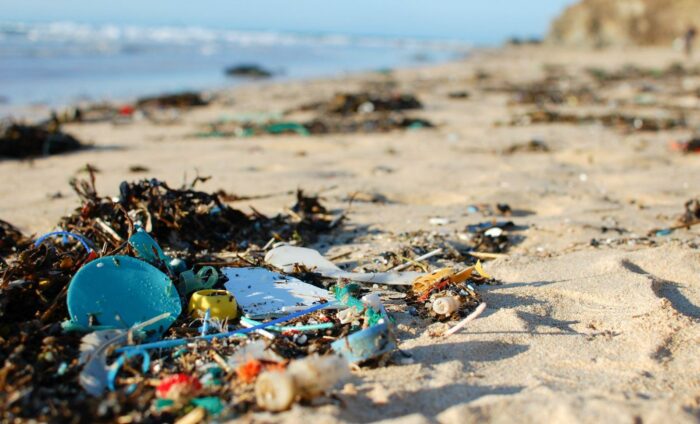
Go plastic-free in June
The amount of plastic litter on our beaches has increased by 180% in the last 20 years and has become a massive threat to marine wildlife, says Marine Conservation Society (MCS), the UK’s leading marine charity. Plastic bags, bottles and tiny plastic pieces are regularly found in the stomachs of turtles and other sea creatures, and in some cases have caused their death from starvation or choking.
As swimmers, I am sure we have all seen plastic waste while swimming in the sea. What can we do about it?
Plastic bags are now no longer given out free in UK shops, but there is more that consumers can do to reduce the amount of plastic we use. MCS is asking people to give up single-use plastic during June. The challenge is to say goodbye to conveniences like pre-packed sandwiches, ready meals and plastic-bottled drinks for a day, a week or the whole month.
Last year almost 850 people took part in the challenge, and over 95% said they would continue reducing their plastic use after the challenge was over. The charity hopes even more people will take part in 2016.
“Our clamour for convenience is bad news for our seas,” says Dr Sue Kinsey of MCS. “Plastic is durable and lightweight, but it’s these properties that allow it to remain in the marine environment for hundreds if not thousands of years. Plastics are among the most persistent synthetic materials in existence and are now a significant and extensive marine pollutant.”
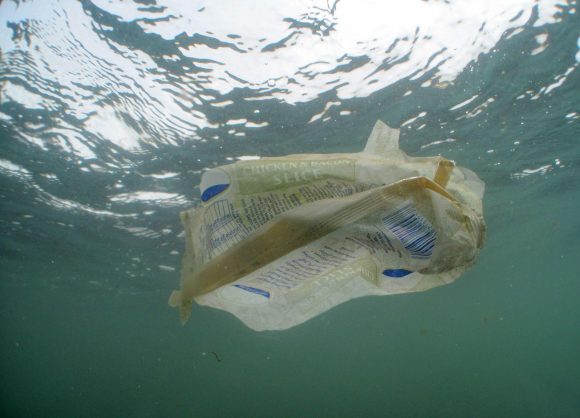
Image credit: Andy Pearson
Giving up plastic takes a bit of ingenuity. Plastic packaging has become so ubiquitous that it is hard to avoid. For example, think about your average office-lunch: plastic-wrapped sandwich, fruit in a plastic bag, yoghurt in a plastic tub (with plastic spoon), pasties in plastic packaging, drinks in plastic bottles…
“This is a tricky challenge,” says Dr Kinsey. “It highlights how reliant we have become on plastic. Last year challengers were making their own bread, yogurt, cleaning and bathroom products like mouthwash and sugar scrubs so as not to use plastic containers that are used once, then thrown out.”
“Reducing plastic litter will certainly be an uphill climb – but if we can all cut down the amount we use, there’s no doubt our marine environment will be a healthier place” says Dr. Kinsey.
The Plastic Challenge is sponsored by water filtration company, Brita.
Register to take part in the Plastic Challenge at www.mcsuk.org/plasticchallenge
Main image credit: Natasha Ewins





